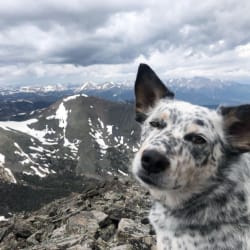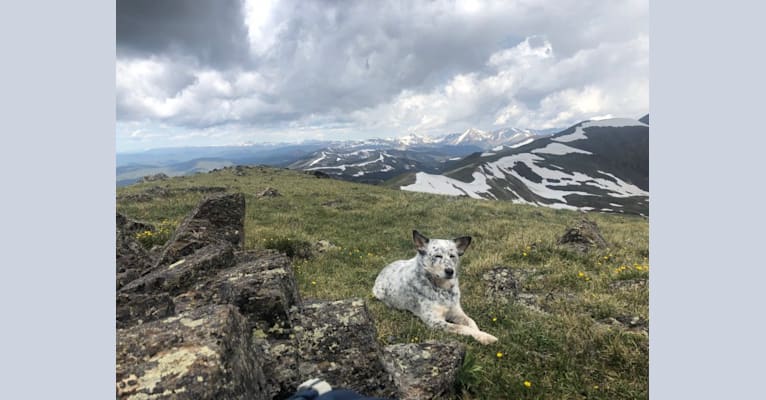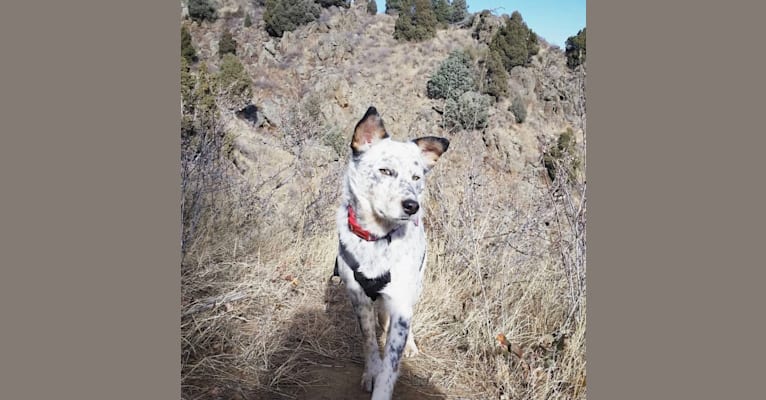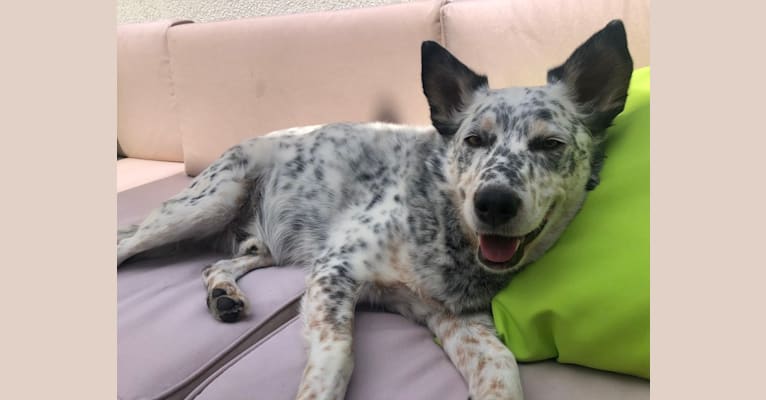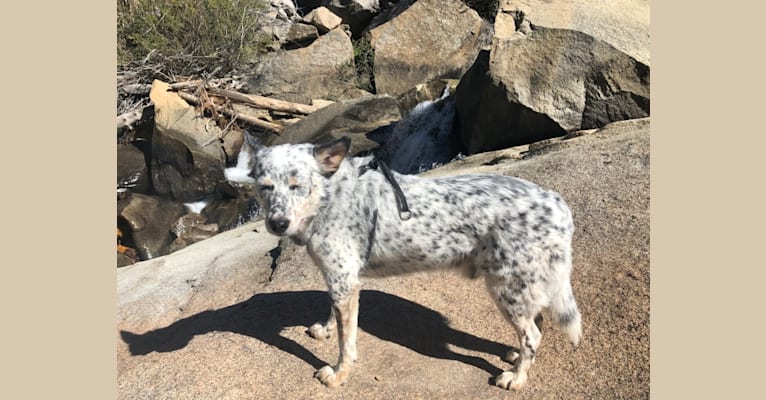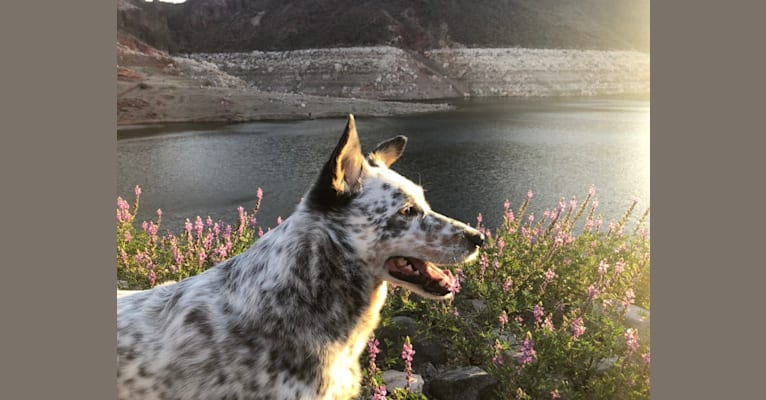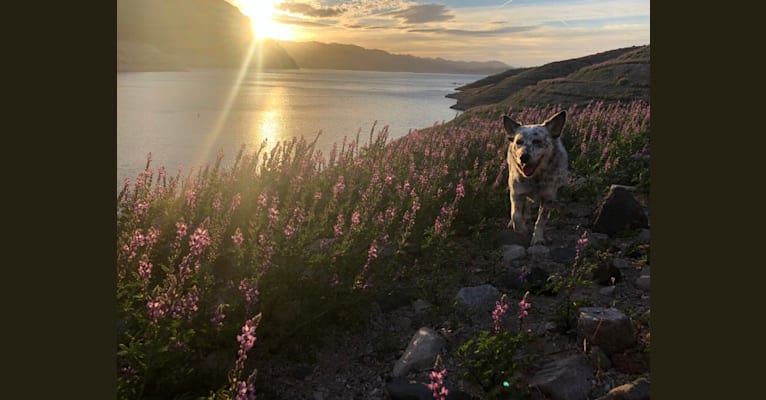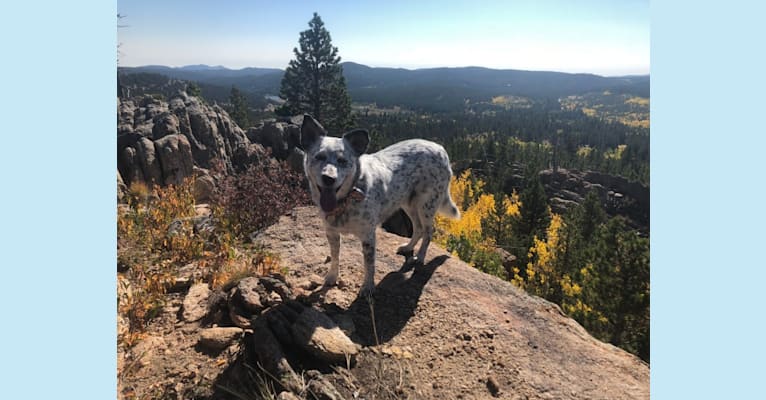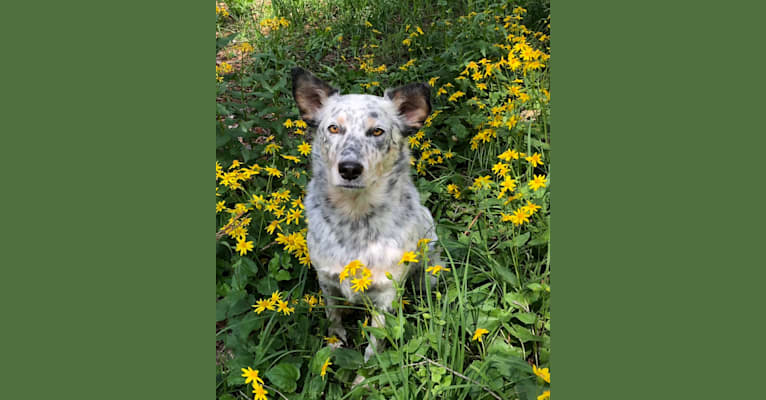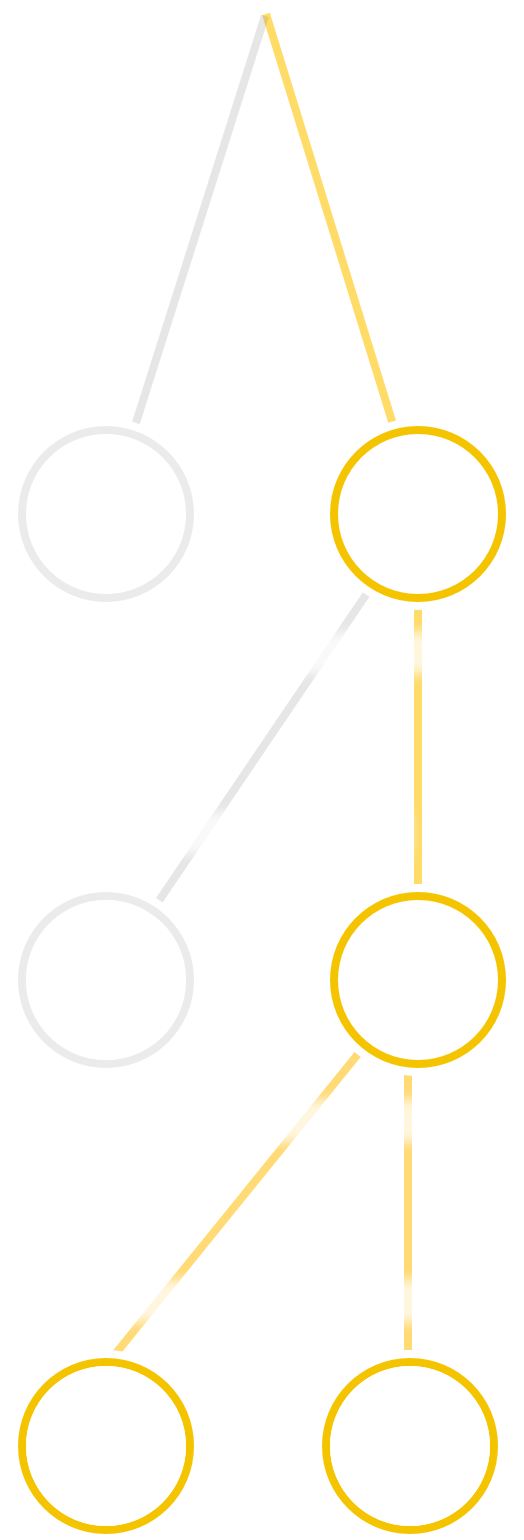No Dogs Available
It looks like you don’t have any dogs on your account yet. Activate a kit now!
Genetic Age
Please note that genetic age is different from calendar age. We can now estimate your dog's calendar age with the Embark Age Test.
The genetic age in this report is an estimation of where your dog is in his or her healthspan. Dogs age at very different rates due to a number of genetic and environmental factors. Body size is a strong genetic influence: for example, a seven year old Great Dane is at the start of his golden years, but a seven year old Pomeranian is just learning what "slow down" means. Just within this example, you can see that the old "one doggie year = seven human years" adage isn’t going to work. And yet, knowing your dog’s age is important: it informs what your dog needs as far as food, frequency of veterinary checkups, and exercise. So how do you best determine how old your dog is?
Embark's genetic age feature calculates how old your dog would be if he or she were aging at an average human rate (using humans in the USA as the baseline). So going back to our Dane/Pom example, we'd estimate a seven year old Great Dane at about 80 years old (senior citizen), but a seven year old Pom would be about 42 (adult). Makes way more sense, right?
| Calendar age | Genetic age |
|---|---|
| 1 year | 18 human years |
| 2 years | 25 human years |
| 3 years | 30 human years |
| 4 years | 36 human years |
| 5 years | 42 human years |
| 6 years | 48 human years |
| 7 years | 54 human years |
| 8 years | 60 human years |
| 9 years | 66 human years |
| 10 years | 72 human years |
| 11 years | 78 human years |
| 12 years | 83 human years |
| 13 years | 89 human years |
| 14 years | 95 human years |
All we need from you is a calendar age. It's okay if this is an estimation: it is just a starting point. We then factor in your dog's breed composition, information at certain genes that affect size, and their inbreeding coefficient to calculate genetic age. Like in humans, in dogs females tend to live longer than males (so an “80 year old” female dog = 80 year old woman). Exercise and diet also play a role in how long your dog will live. Nevertheless, genetic age is the primary risk factor for numerous diseases in dogs, including cancer, kidney disease, osteoarthritis, cataracts, cardiac disease and cognitive decline. It can help you and your vet know what you should feed your dog, what screenings to get, and other aspects of your dog’s care.
Wolfiness score
How wolfy is my dog?
Most dogs have wolfiness scores of 1% or less. We find populations and breeds with higher scores of 2-4% occasionally, and unique dogs with scores of 5% or above more rarely.
What it means for my dog
Your dog’s Wolfiness Score is not a measure of recent dog-wolf hybridization and does not necessarily indicate that your dog has some recent wolf ancestors. (If your dog has recent wolf ancestors, you will see that in the breed mix report.) Instead, the Wolfiness Score is based on the number of ancient genetic variants your dog has in our unique Wolfiness marker panel. Wolfiness scores up to 10% are almost always due to ancient wolf genes that survived many generations, rather than any recent wolf ancestors. These ancient genes may be a few thousand years old, or may even date back to the original domestication event 15,000 years ago. They are bits of a wild past that survive in your dog!
The science
Your dog’s Wolfiness Score is based on hundreds of markers across the genome where dogs (or almost all of them) are the same, but wolves tend to be different. These markers are thought to be related to "domestication gene sweeps" where early dogs were selected for some trait. Scientists have known about “domestication gene sweeps” for years, but do not yet know why each sweep occurred. By finding rare dogs carrying an ancient variant at a certain marker, we can make associations with behavior, size, metabolism, and development that likely caused these unique signatures of “doggyness” in the genome.
Predicted Adult Weight
How does weight matter?
For people with puppies, you probably want to know how big of a crate to buy or just how big to expect your dog to become. But genetic weight is also useful for people with fully grown dogs. Just like with people, overweight and obese dogs suffer reduced length and quality of life. They can develop chronic health conditions and suffer from limited mobility and other issues. While over half of American dogs are overweight or obese, fewer than 15% of their owners realize it. By comparing your dog’s weight to their genetic predicted weight you have one more piece of information about their ideal weight. With this and other pieces of information like weight history and body condition, you and your veterinarian may want to discuss your dog’s diet, exercise, and weight control plan to give your pup the longest, healthiest life possible.
How do we predict weight?
Our test is the only dog DNA test that provides true genetic size not based just on breed ancestry but based on over a dozen genes known to influence a dog’s weight. It uses the most advanced science to determine your dog’s expected weight based on their sex, the combination of these genes, and breed-specific modifiers.
How accurate is the predicted weight?
Unlike in people, healthy weight in dogs is controlled largely by only a few genes. Our algorithm explains over 85% of the variance in healthy adult weight. However, due to a few as-yet-undiscovered genes and genetic interactions that affect size, this algorithm sometimes misses. Occasionally it misses by a fairly large amount especially when a dog has a breed with an unknown size-influencing gene. If we have missed your dog’s weight, your dog may be a scientific discovery waiting to happen! Please be sure to go to the Research tab and complete the Getting to know your dog survey, where you can answer questions about your dog’s current weight and body shape. This information will inform our ongoing research into the genetics of size and weight in dogs.
Haplotypes
Revealing your dog’s ancient heritage
Haplotypes are particular DNA sequences that are inherited entirely from a dog’s mom (maternal) or dad (paternal).
Because they are inherited whole, your dog and his or her mom share the exact same maternal haplotype. If you have a male dog, your dog and his dad share the exact same paternal haplotype (female dogs don’t inherit paternal haplotypes).
Because most breeds were started with only a few individual dogs, many breeds are dominated by only one or a few haplotypes.
Haplogroups
Revealing your dog’s ancient heritage
Haplogroups are groups of similar DNA sequences (called haplotypes) that are inherited entirely from the mother (maternal) or father (paternal) and don’t get shuffled up like other parts of your dog’s genome.
These groups all originally descend from one male or female wolf, usually one that lived tens of thousands of years ago. Because they are inherited whole and not shuffled like other DNA, they can be used to trace the ancestral routes that dogs took around the globe en route to your home.
Only male dogs have paternal haplogroups because they are determined by the Y chromosome, which only male dogs have. Both males and females have maternal haplogroups, which come from a part of DNA called the mitochondrial DNA.
Breed analysis
Breed analysis is based on comparing your dog’s DNA with the DNA of dogs from over 350 breeds, types and varieties.How are Dux's ancestors represented in his DNA?
All dogs are related and share some DNA. Siblings share lots of their DNA (half of it in fact), cousins share a bit less (an eighth), and so on. Because dog breeds are made up of a closed group of dogs, all dogs in that breed share a lot of their DNA, typically about as much as second cousins, though it varies by breed. Different breeds that are closely related share somewhat less DNA, and dogs from very different breeds share even less DNA (but still much more DNA than either dog shares with a cat).
DNA is inherited in pieces, called chromosomes, that are passed along from parent to offspring. Each generation, these chromosomes are broken up and shuffled a bit in a process known as recombination. So, the length of the segments your dog shares with his ancestors decreases with each generation above him: he shares longer segments with his mom than his grandma, longer segments with his grandma than his great-grandma, and so on.
How does Embark know which breeds are in Dux?
We can use the length of segments Dux shares with our reference dogs to see how many generations it has been since they last shared an ancestor. Long segments of DNA that are identical to known purebred dogs tell Embark's scientists that Dux has, without a doubt, a relative from that breed. By testing thousands of genetic markers, we build up his genes one DNA segment at a time, to learn the ancestry with great certainty.
What does this mean for Dux's looks and behavior?
Look closely and you'll probably find Dux has some physical and/or behavioral resemblance with his ancestor's breeds. The exact similarity depends on which parts of DNA Dux shares with each breed. Some traits associated with each breed are listed in the Breed & Ancestry section of our website. Embark will tell you even more about Dux's traits soon!
P.S. In a small proportion of cases, we find dogs that don’t share segments with other dogs we have tested, indicating the presence of a rare breed that is not part of our reference panel or possibly a true "village dog" without any purebred relatives at all. In these rare cases we contact the owner to find out more and let them know about their unique dog before they get their results. With this in-depth detective work, we are pushing science forward by identifying genetically unique groups of dogs.
Still have questions?
Let us know with our contact form.
What are “Dogs Like Dux?”
“Dogs Like Dux” are based on the percentage of breeds the two dogs have in common. For example, two dogs that are both 27% Golden Retriever and 73% Poodle will have a score of 100%. Sometimes dogs with high scores look alike, and sometimes they don’t — either way the comparison is based on each dog’s unique DNA.
“Very loving pup”
Current Location
Denver, Colorado, USA
From
Golden, CO, USA
This dog has been viewed and been given 14 wags
Genetic Breed Result
Australian Cattle Dog
A classic cattle dog, Australian Cattle Dogs were developed from a mixture of breeds in Australia in the 19th century, and still maintain their energetic herding instincts today.
Learn More
Border Collie
Border Collies are highly energetic and work-oriented herding dogs, whose stamina is matched by their intelligence and alertness. While they excel at the herding they were bred for, many Border Collies also enjoy flyball, obedience, and other canine sports. As long as they have a job to do and are physically and mentally stimulated, Border Collies can make excellent companions for the right owners.
Learn More
Collie
Collies are attractive herding dogs, boasting a beautiful coat while being highly intelligent. They also make for extremely loyal and sweet family pets.
Learn More
Start a conversation! Message this dog’s humans.
Dogs Like Dux

Discover dogs who share a similar breed mix to Dux. A higher score means the two dogs have more of their breed mix in common. A score of 100% means they share the exact same breed mix!
Click or tap on a pic to learn more about each dog and see an in-depth comparison of their DNA, breeds, and more.
Building blocks of life
See which breed every part of Dux’s DNA comes from!
Genes from your dog’s breeds serve as the building blocks to creating your unique pooch
Dogs have 39 pairs of chromosomes, almost double humans who have 23. 38 of those pairs are the same for all dogs while the 39th is the sex chromosomes - two X’s for females and one X and one Y for males. One copy of each chromosome came from your dog’s mother and one from your dog’s father. Each copy contains between 24 million and 123 million bases, or letters of DNA code, for 2.5 billion total letters inherited from each parent. This chromosome illustration shows a representation of each of your dog’s 38 pairs of chromosomes (excluding the X and Y sex chromosomes).
Because the members of a breed have similar stretches of DNA, we can use our panel of thousands of genetic markers to determine what part of each chromosome in your dog came from what breed. For each pair of chromosomes, your dog’s mom and dad each gave your dog one copy of that chromosome, for a grand total of 78 chromosomes. So if your dog’s mom was a poodle and dad was a schnauzer then the painting would show one complete poodle and one complete schnauzer chromosome for each pair. The more complex your dog’s ancestry, the more complex the painting, as in each generation recombination (the splitting apart and "shuffling around" of genes between paired chromosomes) mixes up bits of chromosome from grandparents, great-grandparents, and beyond.
Each trait your dog exhibits, such as fur shedding, is based on the letter at one or more locations in your dog’s genome. For example the location determining if your dog sheds their fur is located on chromosome 1. Some other traits, like size, are complexly inherited from many locations, including ones on chromosomes 1, 3, 4, 7, 10, 15, and more. Your dog looks the way it does not because of averaging or blending the breeds that form it, but because specific traits were inherited from specific breeds. That’s one reason your mix may look, act, and have certain health issues much more like one breed than another!
DNA Breed Origins
Explore
Through Dux’s mitochondrial DNA we can trace his mother’s ancestry back to where dogs and people first became friends. This map helps you visualize the routes that his ancestors took to your home. Their story is described below the map.
C2
C21

C2
C2 is a very old female lineage found more commonly among English Setters, English Bulldogs, and American Eskimo Dogs. We also see C2 in village dogs in South Asia. Rather than having a few characteristic breeds representing this lineage particularly well, it is present in a few uncommon individuals of many different breeds. Unlike some European breed lineages that have seen skyrocketing popularity along the path to the modern dogs we see today, C2 tends to reflect the deep history of man's best friend.
C21
Part of the C2 haplogroup, this haplotype occurs most commonly in Border Collies, Australian Cattle Dogs, and village dogs in Fiji.

You can often find his haplogroup in the lovable English Bulldog.
Explore
Through Dux’s Y-chromosome we can trace his father’s ancestry back to where dogs and people first became friends. This map helps you visualize the routes that his ancestors took to your home. Their story is described below the map.
A1a
H1a.20

A1a
Some of the wolves that became the original dogs in Central Asia around 15,000 years ago came from this long and distinguished line of male dogs. After domestication, they followed their humans from Asia to Europe and then didn't stop there. They took root in Europe, eventually becoming the dogs that founded the Vizsla breed 1,000 years ago. The Vizsla is a Central European hunting dog, and all male Vizslas descend from this line. During the Age of Exploration, like their owners, these pooches went by the philosophy, "Have sail, will travel!" From the windy plains of Patagonia to the snug and homey towns of the American Midwest, the beaches of a Pacific paradise, and the broad expanse of the Australian outback, these dogs followed their masters to the outposts of empires. Whether through good fortune or superior genetics, dogs from the A1a lineage traveled the globe and took root across the world. Now you find village dogs from this line frolicking on Polynesian beaches, hanging out in villages across the Americas, and scavenging throughout Old World settlements. You can also find this "prince of patrilineages" in breeds as different as German Shepherds, Golden Retrievers, Pugs, Border Collies, Scottish Terriers, and Irish Wolfhounds. No male wolf line has been as successful as the A1a line!
H1a.20
Part of the large A1a haplogroup, this haplotype occurs in village dogs throughout the world (outside of Asia). It is quite common in breed dogs, occurring frequently in Golden Retrievers, Irish Wolfhounds, Scottish Terriers, Border Collies, and Mastiffs.

Dogs with A1a lineage travelled during European Colonial times.
